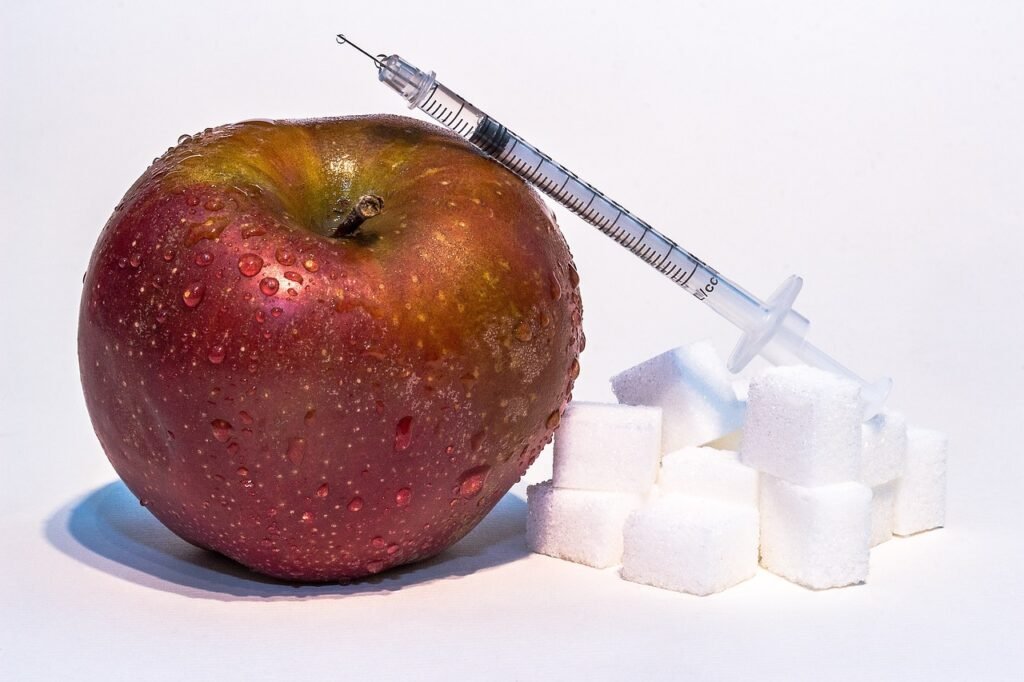Did you know that consuming excessive amounts of fruit can actually have some potential side effects? While fruit is undeniably healthy and packed with essential nutrients, like vitamins and fiber, it is important to strike a balance when it comes to your intake. In this article, we will explore some of the potential downsides of overindulging in fruit and provide you with tips on how to enjoy your favorite fruits while maintaining a balanced diet. So, before you reach for that second bowl of berries or down a whole watermelon, let’s take a closer look at the potential side effects of consuming excessive amounts of fruit.
The Potential Side Effects of Consuming Excessive Amounts of Fruit
1. Digestive Issues
Eating excessive amounts of fruit can lead to digestive issues. While fruit is generally considered a healthy and natural source of fiber, consuming too much can overwhelm your digestive system. This can result in symptoms such as bloating, gas, and diarrhea. The high fiber content of fruits can also speed up your digestion, causing discomfort and potentially interrupting the absorption of other important nutrients from your meals.
2. Dental Problems
Fruit, especially when consumed in excessive amounts, contains natural sugars that can have negative effects on your dental health. Fruit acids can erode your tooth enamel, leading to cavities and tooth sensitivity. Additionally, sticky fruits like dried fruits or fruit snacks can cling to your teeth, providing an environment for harmful bacteria to thrive and increase the risk of tooth decay.

3. Weight Gain
While fruit is often associated with weight loss due to its low calorie content and high fiber content, consuming excessive amounts of fruit can actually contribute to weight gain. Fruits, especially tropical fruits like bananas, mangoes, and pineapples, are relatively high in natural sugars. These sugars, when consumed in excess, can contribute to an increase in calorie intake and potentially lead to weight gain over time.
4. Blood Sugar Imbalance
Fruit contains natural sugars, primarily in the form of fructose. While these sugars are generally considered healthier than refined sugars, consuming excessive amounts of fruit can still lead to blood sugar imbalances. Eating large quantities of fruit can cause a rapid increase in blood sugar levels, followed by a sudden drop. This can lead to feelings of fatigue, dizziness, and cravings for more sugary foods.

5. Nutrient Imbalance
Although fruit is packed with essential vitamins, minerals, and antioxidants, eating too much fruit can create a nutrient imbalance in your diet. By focusing too heavily on fruits, you may neglect other food groups that provide necessary nutrients, such as protein, healthy fats, and whole grains. It’s important to maintain a balanced diet that includes a variety of foods to ensure you’re getting all the essential nutrients your body needs.
6. Increased Risk of Kidney Stones
Consuming excessive amounts of fruits, particularly those high in oxalates such as strawberries, grapes, and kiwi, can increase the risk of developing kidney stones. Oxalates are naturally occurring substances found in many fruits and vegetables that can combine with calcium in your kidneys, forming crystals that may lead to the formation of kidney stones. If you are already prone to kidney stones, it’s important to moderate your fruit intake and consult with a healthcare professional.

7. Gastrointestinal Discomfort
Excessive fruit consumption can lead to gastrointestinal discomfort, particularly for individuals with sensitive digestive systems. Some fruits, especially citrus fruits like oranges and grapefruits, are acidic and can irritate the lining of the stomach, causing heartburn or stomachaches. If you experience digestive discomfort after consuming large amounts of fruit, it may be helpful to limit your intake or choose fruits that are less acidic.
8. Allergic Reactions
While fruit allergies are relatively rare, it is possible to develop allergies to certain fruits. If you consume excessive amounts of a specific fruit to which you’re allergic, it can lead to allergic reactions such as itching, swelling, hives, or even serious allergic reactions like anaphylaxis. It’s important to be mindful of any allergic symptoms you experience after eating fruits and consult with a healthcare professional for proper diagnosis and guidance.

9. Interference with Medications
Certain fruits, particularly grapefruit and its juice, can interfere with the absorption and breakdown of medications in the body. Grapefruit contains compounds that inhibit enzymes responsible for metabolizing medications, resulting in higher levels of the drug in your bloodstream. This can lead to increased side effects or even toxicity. If you are taking any medications, it’s important to check with your healthcare provider about whether you should avoid consuming grapefruit or its juice.
10. Impact on Oral Health
Eating excessive amounts of fruit, especially in the form of fruit juices or smoothies, can have a negative impact on your oral health. Fruit juices, even if freshly squeezed, are high in sugars and can increase the risk of tooth decay and erosion. Smoothies, while often perceived as a healthy choice, can be high in sugar and acidic content, which can harm your tooth enamel. It’s important to consume fruit juices and smoothies in moderation and practice good oral hygiene to protect your teeth.
In conclusion, while fruits are an important part of a balanced diet, consuming excessive amounts can have potential side effects. It’s essential to practice moderation, vary your fruit choices, and consider your individual health conditions and dietary needs. If you have concerns or experience any adverse effects from eating fruits, it is always wise to consult with a healthcare professional for personalized guidance.


